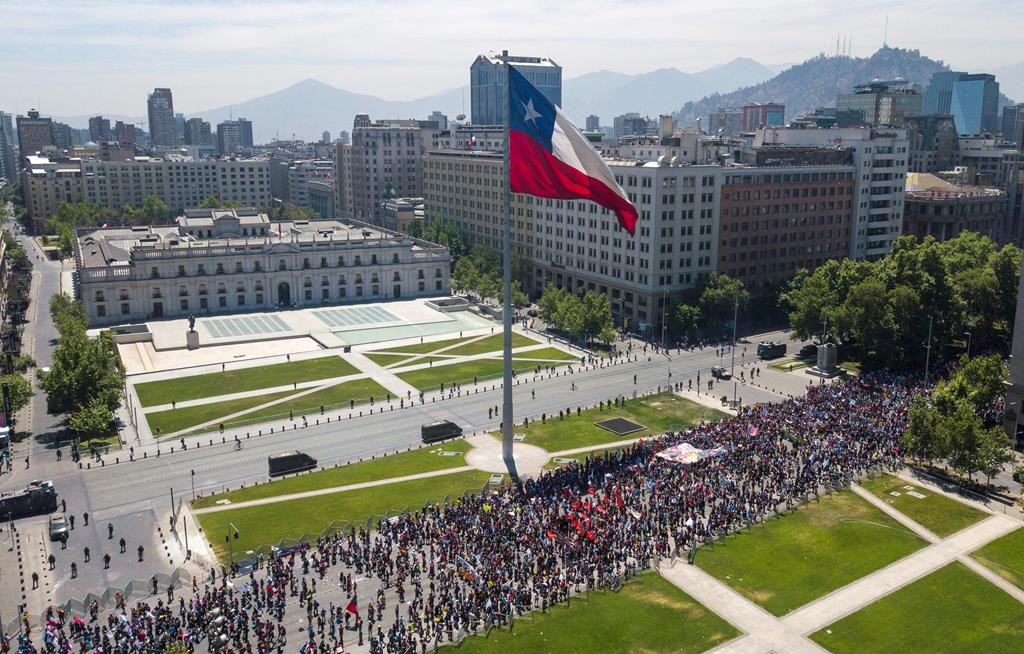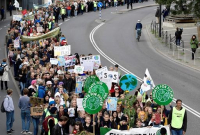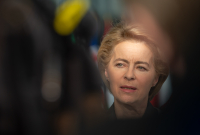Support strong Canadian climate journalism for 2025
Chile's cancellation of two upcoming summits is a sign of a weakening world order that Prime Minister Justin Trudeau and his fellow world leaders need to confront, says the head of a Canadian foreign policy think-tank.
Trudeau spoke to President Sebastian Pinera on Tuesday, one day before the Chilean leader pulled the plug on the Nov. 16-17 gathering of the Asia-Pacific Economic Co-operation leaders' meeting because of protests that have disrupted his country for nearly two weeks. Pinera also cancelled the international climate summit that was set for mid-December in the Chilean capital of Santiago.
Chilean protesters have taken to the streets to decry a lack of income equality and inadequate public services. The unrest has included vandalism and arson and forced the shutdown of several subway stations.
Ben Rowswell, the head of the Canadian International Council, said the Chilean situation is a part of a global trend that reminds him of the Arab Spring uprisings across several countries in 2011. What's different is today's protests are taking place against a variety of governments whether it is authoritarian regimes in China, the Hezbollah-backed government in Lebanon, or Chile that has traditionally been a strong economic and political ally of Canada.
"There's a remarkable wave of protests taking place across the world right now from Hong Kong to Lebanon to Chile," said Rowswell, a former Canadian ambassador to Venezuela.
"The balance of power between states and their populations seems to be shifting. The states have less power than they used to. You've got well mobilized populations that are in the streets, and determined to stay there."
Chile's cancellation of the APEC summit means Trudeau likely won't be venturing too far from home any time soon as he retools his cabinet for a minority government. Trudeau has said he will announce his new cabinet on Nov. 20.
The APEC summit would have provided an opportunity for Trudeau to attend a meeting that would have included the leaders of Canada's top trading partners: U.S. President Donald Trump and Chinese President Xi Jinping.
Rowswell said Trudeau and his government would do well to use the potential reprieve to do some soul searching about a more robust role for Canada in the world, following a dismal federal election campaign that saw no meaningful discussion of foreign policy.
"The interruption of a few summits doesn't help. But the disruption we're seeing in the streets of Santiago pale in comparison to the disruptions in the international order we're seeing more broadly."
A summary from the Prime Minister's Office of Trudeau's phone call with Pinera made no direct mention of the ongoing turmoil in Chile, a thriving country with which Canada has negotiated a free trade agreement, or the summits.
Trudeau's office said he and Pinera "exchanged views on key regional issues, including the importance of addressing people's concerns around economic opportunity and inequalities." They also discussed "irregularities" in Bolivia's election this week, where the leftist government of Evo Morales is facing allegations of election rigging.
This report by The Canadian Press was first published Oct. 30, 2019.





Comments